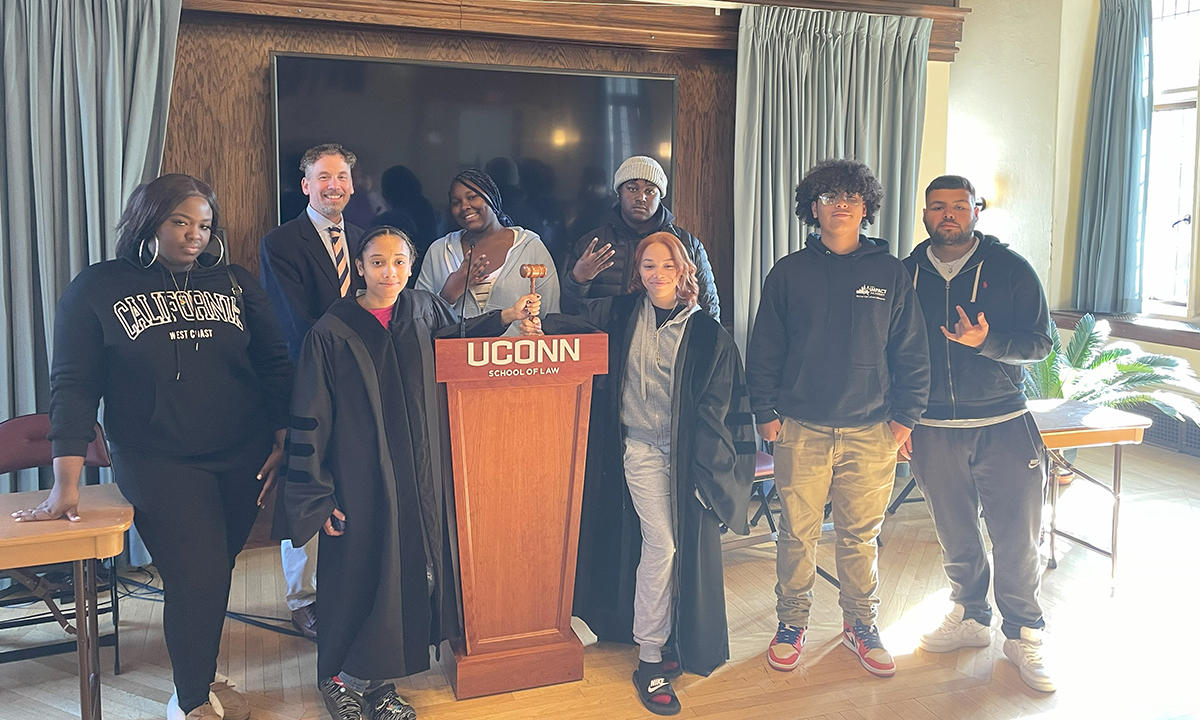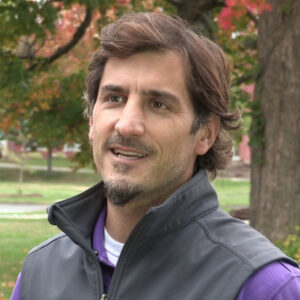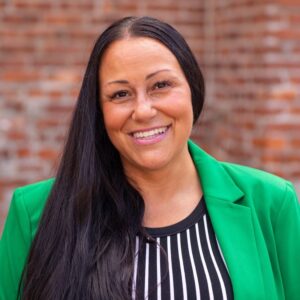Educators’ View: Students Excel When Expectations for Them Are High
3 New England school leaders on helping young people overcome obstacles and pursue lives of opportunity and choice.

Get stories like this delivered straight to your inbox. Sign up for The 74 Newsletter
The 2022-23 school year marked a time rich with potential and hope, but the appearance of normalcy and feeling of relief have been tempered by the reality that COVID exacerbated many students’ pre-pandemic challenges. After two decades of progress, national math and reading scores hit historic lows. Many students are coming to school with emotional, physical, nutritional and housing needs.
It can feel overwhelming to process all the demands and challenges that young people face in addition to their schoolwork. But what gives us hope and has inspired our careers as high school leaders is the belief in the potential of a high-quality education to help students overcome obstacles and pursue lives of opportunity and choice.
We believe students need rigor and purpose to meet their goals. Rigor challenges students to think critically and search for answers to tough questions. Purpose gives them relevant learning experiences that they can connect with their lives. With support and funding from the education nonprofit Springpoint and Barr Foundation’s “Engage New England” initiative, our three schools have created programming that is designed to help students meet the high expectations set for them — particularly students of color, those from low-income families, English learners and those with special needs. Our schools were designed specifically for students who had not been well served educationally, and as a result, many are not on track to graduate from high school when they enroll.
We have seen firsthand how our belief in the importance of maintaining high expectations translates into meaningful and challenging academic experiences and in students’ increased confidence in what they can accomplish.
At the Capitol Region Education Council’s Impact Academy in Hartford, students took their educational experience outside the classroom to apply their learning in real and relevant ways. An example of this is through the “Students and the Law” course. Impact Academy students collaborated with students from the University of Connecticut School of Law, culminating in a Moot Court exercise in which they took on the roles of petitioners, respondents and justices. This was new territory for many of them. They had to be prepared to present complicated arguments in a formal setting at the law school. They researched, practiced and worked together. The school’s combination of high expectations and relevant learning opportunities has given them a purpose and created for the students a new postsecondary vision for themselves. Over two-thirds of the current graduating class plan to continue their education.
At Evolve Academy in Massachusetts’s Fall River Public Schools, a Portrait of a Graduate was created that defines the essential skills and mindsets that students are expected to have when they leave. They are expected to develop the ability to argue, investigate, discern, collaborate, communicate and self-direct. For example, students participated in a project-based unit called “My Point of View,” in which they used storytelling to create a powerful and compelling personal statement that expressed their values. One student, Anthony Jacobs, wrote about how expressing himself through art helped him cope after a tragic accident and has inspired him to pursue it as a career. Some 70% of students at Evolve report that they would have dropped out if they had gone to another school; now every 2023 graduate has a postsecondary plan in place.
At Nowell Academy in Providence, educators work with students to set weekly academic goals. Pushing the students helps them build confidence that they can accomplish ambitious and worthy learning, while completing tasks that require them to create and produce solutions and arguments raises their expectations for what they can accomplish. For example, in the math unit “You Auto Know,” freshmen learn and demonstrate the mathematics of buying a car. Student Yosalin Alvarado compared investing in a 2022 Honda Accord and a 2022 Honda Civic, analyzing the differences in base price, depreciation and gas mileage and the similarities of multi-year loan financing costs, insurance payments and brand. Then, she made final recommendations, as if presenting them to a client, about which vehicle to purchase. Such expectation-raising work has helped foster a college-going culture and boosted student engagement. One telling metric: 100% of Nowell seniors completed the federal financial aid form this year, while just a few years ago the FAFSA completion rate was 30%.
Learning at our three schools is not just about meeting graduation requirements, but rather about building skills and networks, providing opportunities to help students see what is possible and supporting them so they can excel. We expect students to be challenged, to apply their learning and to strengthen their own identities.
Even in difficult times like these, high expectations are not only possible, but necessary — for all students in all schools. Teachers must ask young people to do hard things. School leaders need to create rigorous and purposeful learning experiences that allow all students to meet and exceed the high expectations set for them.
Disclosure: XQ and Carnegie Corporation of New York partner with Springpoint Schools and provide financial support to The 74.
Get stories like these delivered straight to your inbox. Sign up for The 74 Newsletter

;)


